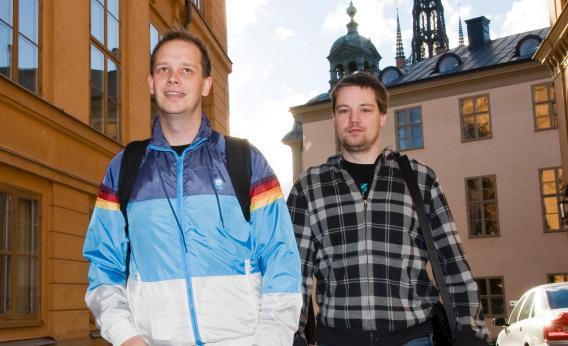The Pirate Bay, a site that rose to fame for making TV and movie piracy via Bit Torrent easy, recently pushed downloading into the next dimension. The Web site now shares the designs of objects that can be downloaded and then printed in 3-D in the category “physibles.”
According to a post on its blog, the Pirate Bay hopes to blaze a path here. Though it currently shares the blueprints for just a handful of small objects that could be printed in the plastic used in most 3D printers, these buccaneers are looking to expand in the future. The blog notes:
We believe that the next step in copying will be made from digital form into physical form. It will be physical objects. … We believe that in the nearby future you will print your spare sparts [sic] for your vehicles. You will download your sneakers within 20 years.
Three-dimensional printers are still too expensive and new to be owned by the masses, and how much they will actually change manufacturing and consumer purchases remains to be seen. Still, the Pirate Bay’s new venture raises interesting questions about copyright infringement.
Currently, the designs on offer are either made by the Pirate Bay or are already in the public domain, according to Tech News World. But can we assume that the site will soon be in the business of sharing copyrighted designs? The Pirate Bay has had multiple run-ins with the law overseas in recent years, according to the Huffington Post. Earlier this month, a Dutch court ordered two cable companies in the Netherlands to block the site, and it is banned in Sweden, where the Pirate Bay was founded. In the wake of recent government shutdown of Megaupload, another file sharing portal, perhaps the Pirate Bay is laying low (or maybe 3-D printing is too new for there to be pirate-able, copyrighted content). But given the Pirate Bay’s prediction that toys and sneakers will be replicable via 3-D printers in the coming decades, perhaps their manufacturers will deem it necessary to join the ranks of Hollywood and support SOPA- and PIPA-like legislation. Piracy in the physical form may force lawmakers to take a closer look at feasible ways to regulate torrenting and the like.
Yet The Pirate Bay promotes the concept as something with purely positive results:
The benefit to society is huge. No more shipping huge amount of products around the world. No more shipping the broken products back. No more child labour. We’ll be able to print food for hungry people. We’ll be able to share not only a recipe, but the full meal.
Maybe the societal benefits will someday outweigh the corporate world’s issue with piracy. But probably not.
